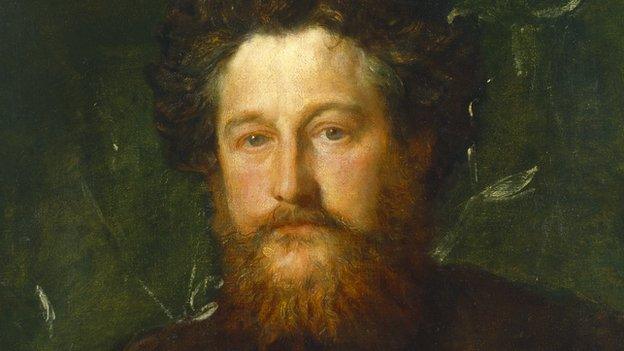Cambridge: David Parr house and workplace gain listed status
- Published
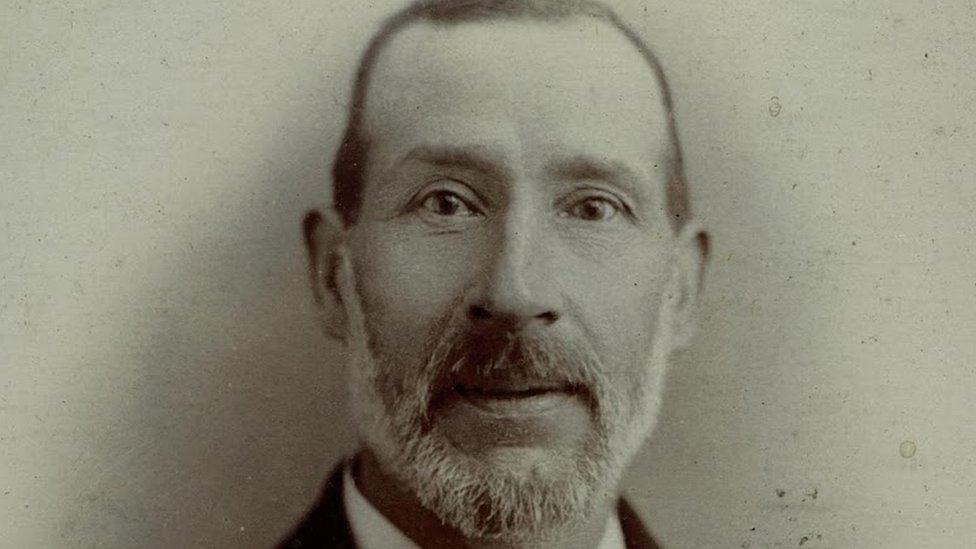
David Parr, born in Chesterton, Cambridge, lost his mother to phthisis in 1860, and his father, a labourer, went to prison in 1858 after stealing a pig while under the influence of alcohol
Two properties celebrating an "inspirational and unsung" artisan decorator have gained listed status.
David Parr's "extraordinary and unique" interiors can still be seen at the David Parr House, the former family home in Gwydir Street, Cambridge.
It has been listed at Grade II*, while his former workplace at 3 St Mary's Passage has been listed at Grade II.
Historic England said the move gave "due recognition" to "unknown highly talented artists and craftsmen".
The organisation said the David Parr House, decorated in the Arts and Crafts style, "appears in passing to be an ordinary mid-Victorian worker's terraced house... once through the front door, the interior is extraordinary".
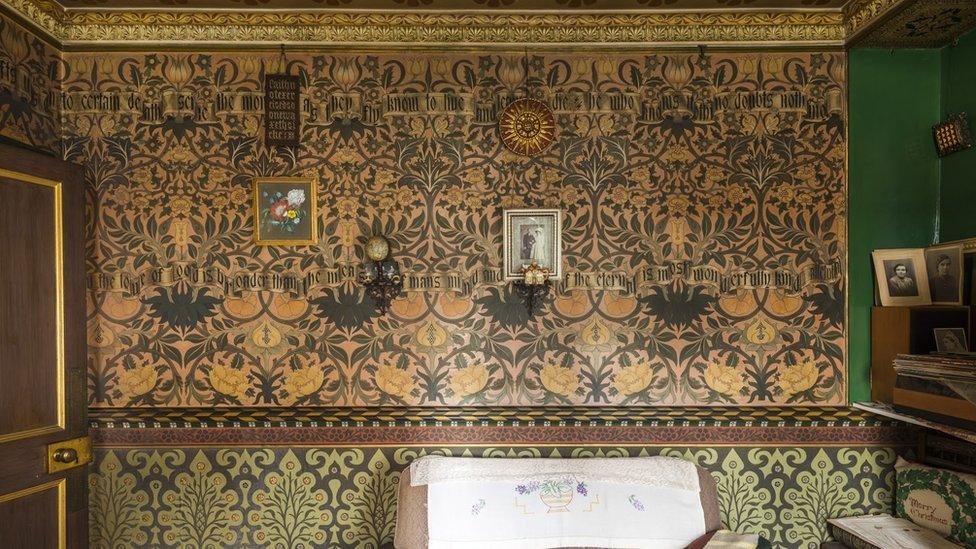
Parr, who was born in 1854 and died in 1927, bought the house in 1886, and spent the rest of his life there with his wife Mary Jane and their three children.
For the next 40 years, he transformed it, covering the walls and ceilings with patterns.
Until 2013, it was owned by his family, who made very limited alterations.
Now a visitor attraction, it is run by the David Parr House charity, whose chairwoman of trustees Tamsin Wimhurst, said: "This is wonderful recognition for all the hard work shown by everyone who helped to save and conserve the David Parr House.
"It highlights the importance of having spaces where we can celebrate ordinary working people, the beauty of making and the comfort of home."
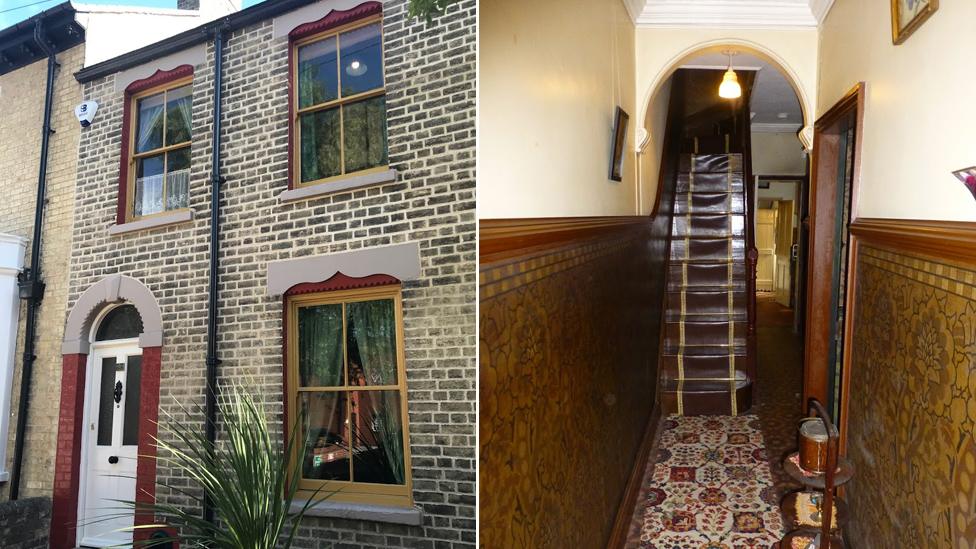
The David Parr House has been relatively unchanged for over a century
Parr was employed at the showroom of F R Leach & Sons, based at 3 St Mary's Passage.
It worked in partnership with some of the country's best-known designers and architects, including William Morris, the father of the Arts and Crafts movement, which began in the late 19th Century as a reaction to industrialisation and mass production.
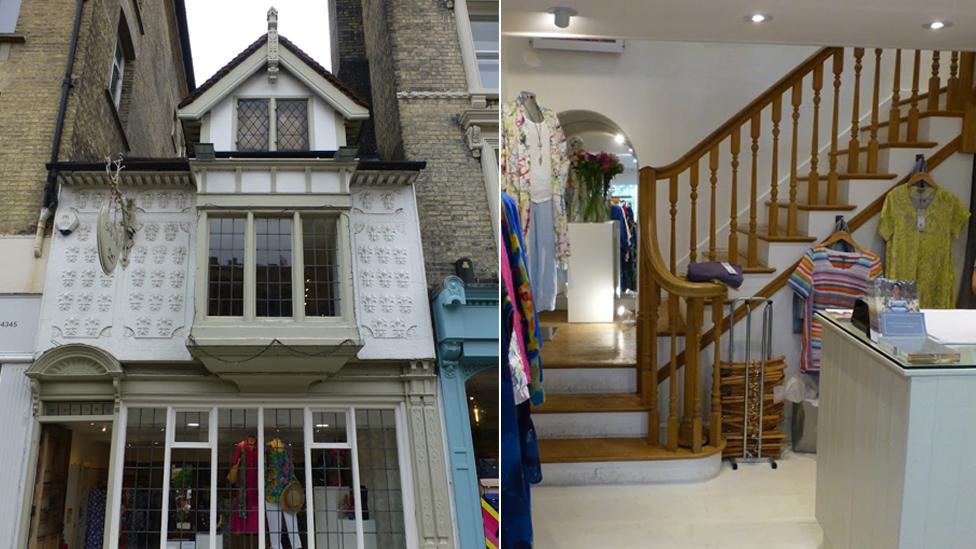
3 St Mary's Passage is now a shop after being bought by King's College Cambridge in 1936
Historic England said it had awarded a £40,212 grant to create a digital and audio tour of the house, enabling it to "engage with a wider audience".
General tours are currently on hold due to the coronavirus pandemic.

Find BBC News: East of England on Facebook, external, Instagram, external and Twitter, external. If you have a story suggestion email eastofenglandnews@bbc.co.uk, external
- Published13 August 2020
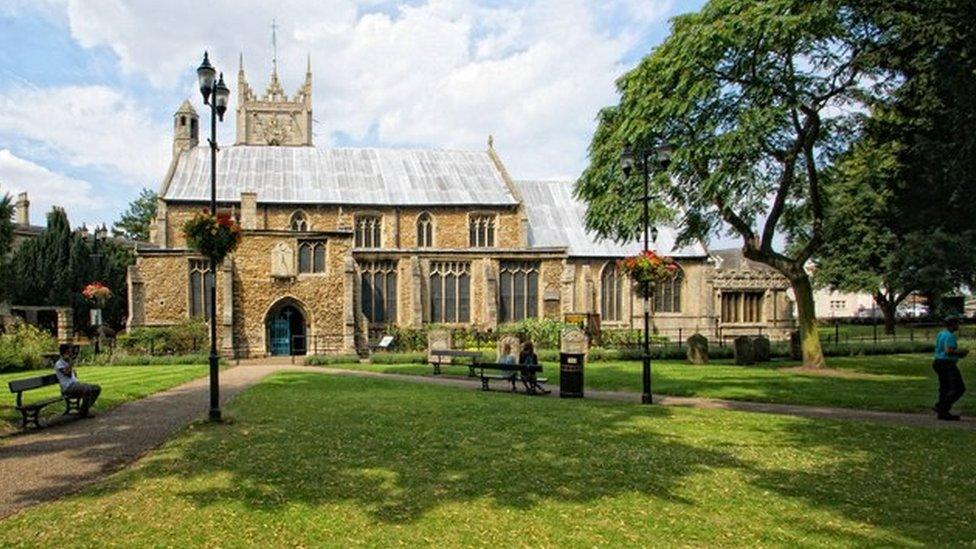
- Published17 March 2019
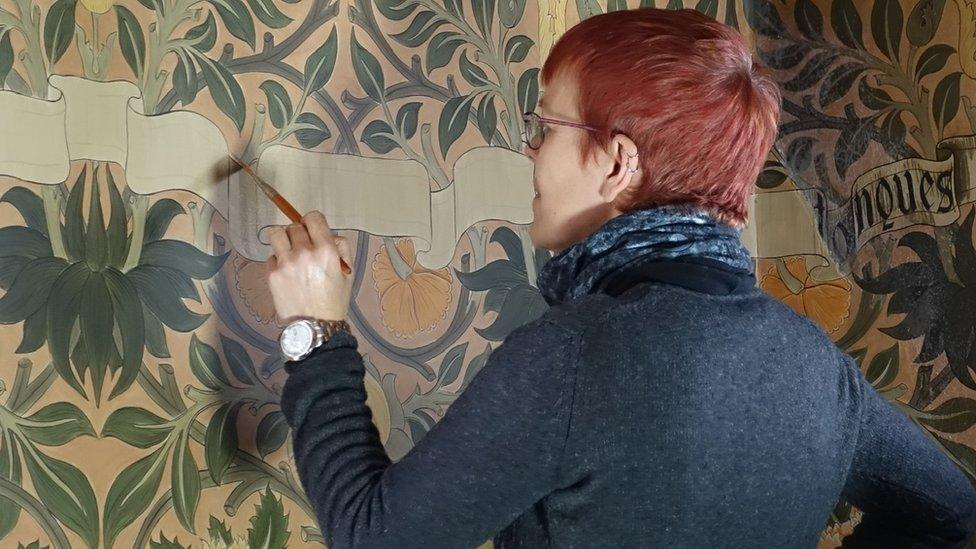
- Published16 October 2014
